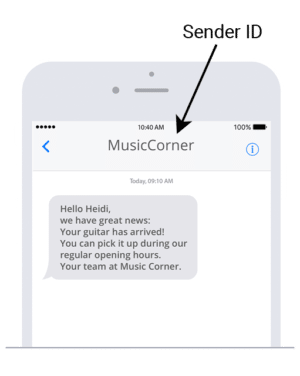What you need to know before you choose a Sender ID for your SMS
When you start looking into sending SMS for your business, you will encounter many technical terms and details that you will want to understand and pay attention to. One of these technical terms is the so-called Sender ID, which is sometimes also called SMS Sender ID or Sender Name. Special rules may apply to what names you can choose depending on the recipient country, but there are also technical details you should know about. In our blog post, we would therefore like to show you what to pay attention to when selecting a Sender ID.
